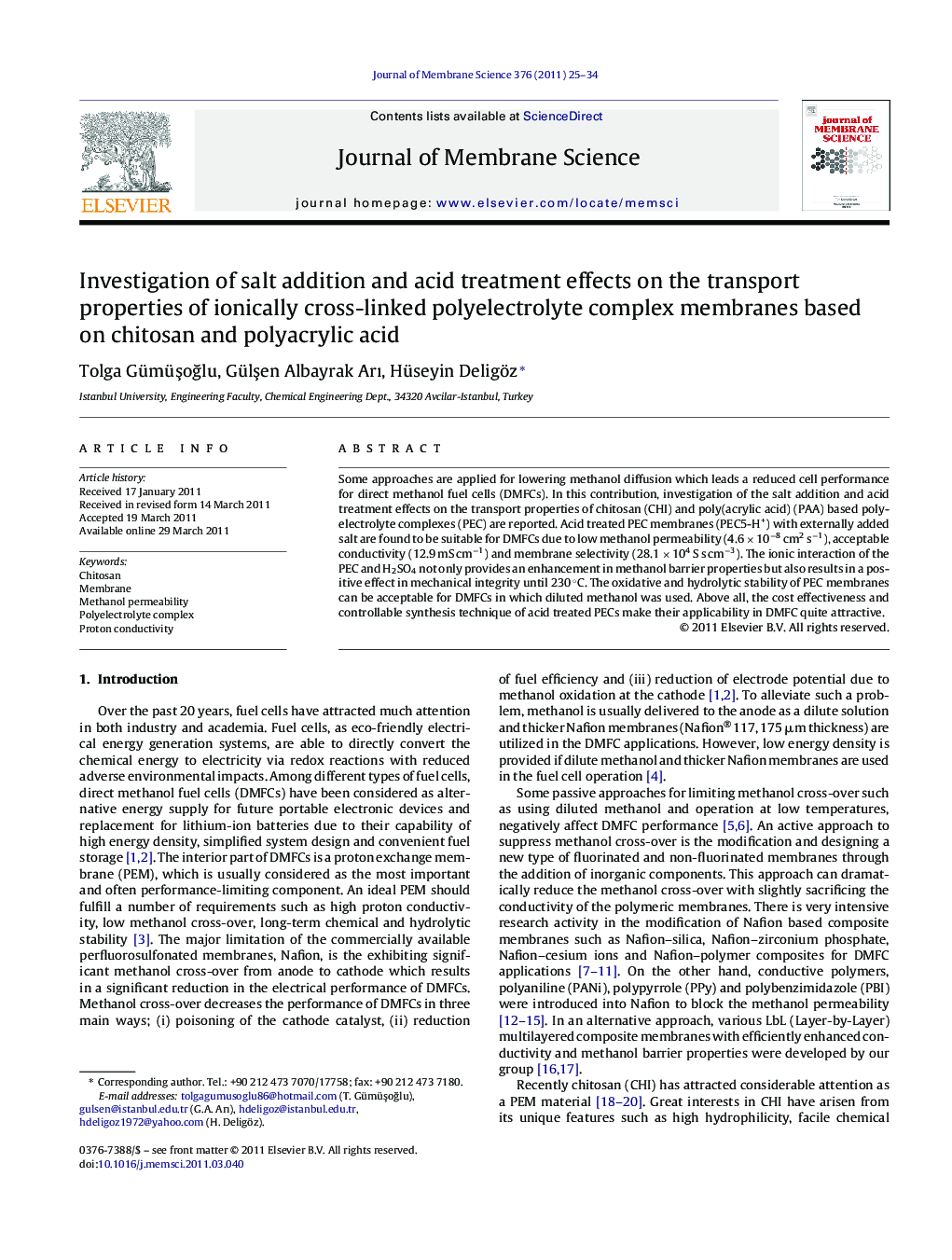| Article ID | Journal | Published Year | Pages | File Type |
|---|---|---|---|---|
| 635707 | Journal of Membrane Science | 2011 | 10 Pages |
Some approaches are applied for lowering methanol diffusion which leads a reduced cell performance for direct methanol fuel cells (DMFCs). In this contribution, investigation of the salt addition and acid treatment effects on the transport properties of chitosan (CHI) and poly(acrylic acid) (PAA) based polyelectrolyte complexes (PEC) are reported. Acid treated PEC membranes (PEC5-H+) with externally added salt are found to be suitable for DMFCs due to low methanol permeability (4.6 × 10−8 cm2 s−1), acceptable conductivity (12.9 mS cm−1) and membrane selectivity (28.1 × 104 S s cm−3). The ionic interaction of the PEC and H2SO4 not only provides an enhancement in methanol barrier properties but also results in a positive effect in mechanical integrity until 230 °C. The oxidative and hydrolytic stability of PEC membranes can be acceptable for DMFCs in which diluted methanol was used. Above all, the cost effectiveness and controllable synthesis technique of acid treated PECs make their applicability in DMFC quite attractive.
Graphical abstractFigure optionsDownload full-size imageDownload high-quality image (34 K)Download as PowerPoint slideHighlights► The conductivity and methanol barrier properties of the PEC membranes are simultaneously enhanced using extra salt. ► Acid treated PECs seem to be suitable for DMFCs due to high membrane selectivity. ► The ionic interaction yields a significant decline in methanol diffusion. ► The ionic interaction results in acceptable mechanical and chemical stability.
